| |||
|---|---|---|---|
| +... |
This is a list of notable events relating to the environment in 2016. They relate to environmental law, conservation, environmentalism and environmental issues.
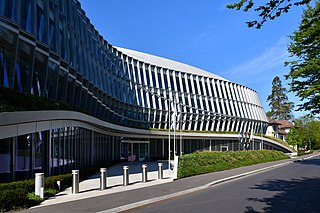
The International Olympic Committee is a non-governmental sports organisation based in Lausanne, Switzerland.

The Kyoto Protocol (Japanese: 京都議定書, Hepburn: Kyōto Giteisho) was an international treaty which extended the 1992 United Nations Framework Convention on Climate Change (UNFCCC) that commits state parties to reduce greenhouse gas emissions, based on the scientific consensus that global warming is occurring and that human-made CO2 emissions are driving it. The Kyoto Protocol was adopted in Kyoto, Japan, on 11 December 1997 and entered into force on 16 February 2005. There were 192 parties (Canada withdrew from the protocol, effective December 2012) to the Protocol in 2020.
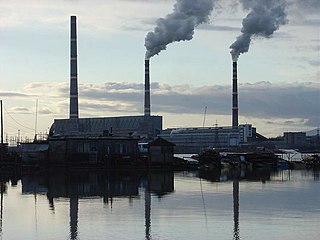
A carbon tax is a tax levied on the carbon emissions from producing goods and services. Carbon taxes are intended to make visible the hidden social costs of carbon emissions. They are designed to reduce greenhouse gas emissions by essentially increasing the price of fossil fuels. This both decreases demand for goods and services that produce high emissions and incentivizes making them less carbon-intensive. When a fossil fuel such as coal, petroleum, or natural gas is burned, most or all of its carbon is converted to CO2. Greenhouse gas emissions cause climate change. This negative externality can be reduced by taxing carbon content at any point in the product cycle.
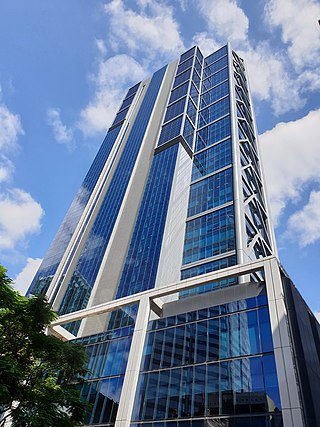
BHP is an Australian multinational mining and metals public company headquartered in Melbourne, Australia.

The United Nations Conference on Environment and Development (UNCED), also known as the RioConference or the Earth Summit, was a major United Nations conference held in Rio de Janeiro from 3 to 14 June 1992.

The 2016 Summer Olympics, officially the Games of the XXXI Olympiad and officially branded as Rio 2016, were an international multi-sport event held from 5 to 21 August 2016 in Rio de Janeiro, Brazil, with preliminary events in some sports beginning on 3 August. Rio de Janeiro was announced as the host city at the 121st IOC Session in Copenhagen, Denmark, on 2 October 2009.

Rio Tinto Group is a British-Australian multinational company that is the world's second largest metals and mining corporation. It was founded in 1873 when a group of investors purchased a mine complex on the Rio Tinto, in Huelva, Spain, from the Spanish government. It has grown through a long series of mergers and acquisitions. Although primarily focused on extraction of minerals, it also has significant operations in refining, particularly the refining of bauxite and iron ore. It has joint head offices in London, England and Melbourne, Australia.
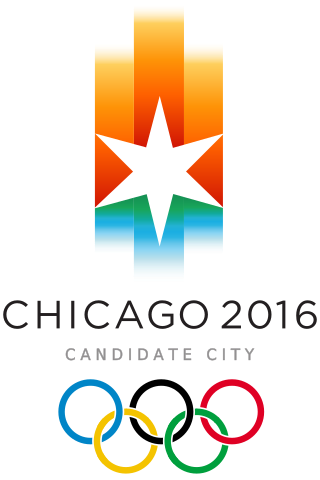
The Chicago bid for the 2016 Summer Olympics and Paralympics was an unsuccessful bid, first recognized by the International Olympic Committee (IOC) on September 14, 2007. The IOC shortlisted four of the seven applicant cities—Madrid, Spain; Tokyo, Japan; Rio de Janeiro, Brazil; and Chicago, United States; over Baku, Azerbaijan; Doha, Qatar; and Prague, Czech Republic—on June 4, 2008, during a meeting in Athens, Greece. This was followed by an intensive bidding process which finished with the election of Rio de Janeiro at the 121st IOC Session in Copenhagen, Denmark, on October 2, 2009.

Environmental issues in China had risen in tandem with the country's rapid industrialisation, as well as lax environmental oversight especially during the early 2000s. China was ranked 120th out of the 180 countries on the 2020 Environmental Performance Index.
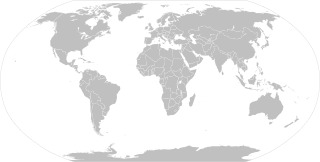
Seven cities submitted bids for 2016 Summer Olympics and Paralympics on September 13, 2007, aiming to host the Games of the XXXI Olympiad. All of them were recognized by the International Olympic Committee (IOC) on September 14, 2007, becoming Applicant cities. Although several cities submitted to be in consideration to host the 2016 Olympics, including New York City and Los Angeles, on June 4, 2008, the IOC Executive Board shortlisted the four strongest bids to become Candidate cities. Those cities were Chicago, Madrid, Rio de Janeiro and Tokyo; the decisions were made during a meeting in Athens, Greece. The remaining Applicant cities—Baku, Doha and Prague—were eliminated.

Rio 2016 was a successful bid to host the Games of the XXXI Olympiad and the XV Paralympic Games, respectively. It was submitted on September 7, 2007, and recognized as an Applicant city by the International Olympic Committee (IOC) one week after. On June 4, 2008, the IOC Executive Board shortlisted Rio de Janeiro with three of the six other Applicant cities—Chicago, Madrid and Tokyo; over Baku, Doha and Prague—becoming a Candidate city during the 2008 SportAccord Convention in Athens, Greece.

The Tokyo bid for the 2016 Summer Olympics and Paralympics was an unsuccessful bid, first recognized by the International Olympic Committee (IOC) on September 14, 2007. The IOC shortlisted four of the seven applicant cities—Chicago, United States; Madrid, Spain; Rio de Janeiro, Brazil; and Tokyo, Japan; over Baku, Azerbaijan; Doha, Qatar; and Prague, Czech Republic—on June 4, 2008 during a meeting in Athens, Greece. This was followed by an intensive bidding process which finished with the election of Rio de Janeiro at the 121st IOC Session in Copenhagen, Denmark, on October 2, 2009.

The Madrid bid for the 2016 Summer Olympics and Paralympics was an unsuccessful bid, first recognized by the International Olympic Committee (IOC) on September 14, 2007. The IOC shortlisted four of the seven applicant cities—Chicago, United States; Tokyo, Japan; Rio de Janeiro, Brazil; and Madrid, Spain; over Baku, Azerbaijan; Doha, Qatar; and Prague, Czech Republic—on June 4, 2008 during a meeting in Athens, Greece. This was followed by an intensive bidding process which finished with the election of Rio de Janeiro at the 121st IOC Session in Copenhagen, Denmark, on October 2, 2009.

Carbon emission trading (also called carbon market, emission trading scheme (ETS) or cap and trade) is a type of emissions trading scheme designed for carbon dioxide (CO2) and other greenhouse gases (GHGs). It is a form of carbon pricing. Its purpose is to limit climate change by creating a market with limited allowances for emissions. This can reduce the competitiveness of fossil fuels, and instead accelerate investments into renewable energy, such as wind power and solar power. Fossil fuels are the main driver for climate change. They account for 89% of all CO2 emissions and 68% of all GHG emissions.
Environmental issues in Brazil include deforestation, illegal wildlife trade, illegal poaching, air, land degradation, and water pollution caused by mining activities, wetland degradation, pesticide use and severe oil spills, among others. As the home to approximately 13% of all known species, Brazil has one of the most diverse collections of flora and fauna on the planet. Impacts from agriculture and industrialization in the country threaten this biodiversity.
An eco-tariff, also known as an environmental tariff or carbon tariff, is a trade barrier for the purpose of reducing pollution and improving the environment. These trade barriers may take the form of import or export taxes on products that have a large carbon footprint or are imported from countries with lax environmental regulations. The EU Carbon Border Adjustment Mechanism is a carbon tariff.

The 2016 Summer Olympics, officially known as the "Games of the XXXI Olympiad", was an international multi-sport event held in Rio de Janeiro, Brazil, from August 5 to August 21, 2016.[n 1]

The National Green Tribunal Act, 2010 is an Act of the Parliament of India which enables the creation of a special tribunal to handle the expeditious disposal of the cases pertaining to environmental issues. It draws inspiration from India's constitutional provision of Article 21 Protection of life and personal liberty, which assures the citizens of India the right to a healthy environment. This Act serves as a basis for the establishment of the National Green Tribunal (NGT).
This is a list of notable events relating to the environment in 2012. They relate to environmental law, conservation, environmentalism and environmental issues.
The 2030 FIFA World Cup will be the 24th FIFA World Cup, a quadrennial international football tournament contested by the men's national teams of the member associations of FIFA. The 2030 World Cup will mark the centennial World Cup competition. For the first time, three countries from two continents will host the competition, with Morocco, Portugal, and Spain as host nations. Additionally, Argentina, Paraguay, and Uruguay will commemorate the 100th anniversary of the FIFA World Cup, in particular the first World Cup in Uruguay. The first game, alongside a special centenary celebration, will be held in the Estadio Centenario in Montevideo, Uruguay. The second and third games will be held in Argentina and Paraguay, respectively. The rest of the games and the opening ceremony will be held in Morocco, Portugal, and Spain. This will be the first World Cup held in Africa since 2010, in South America since 2014, as well as in Europe since 2018.